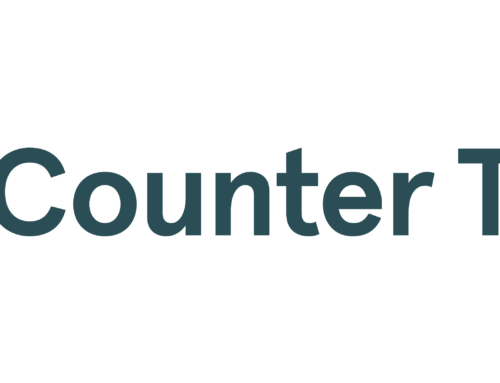As Counter Tools celebrates our 10th anniversary, we’re reflecting on the partnerships that sparked community change in the retail environment and looking forward to our ambitious goals to address health equity and empower communities to become healthier places for all.
Where we’ve been
Over the past decade, we’ve learned that the retail environment can make a drastic impact on the health of a community, particularly for disinvested and marginalized communities. Community-led data gathering and storytelling are powerful forces that can shape the policy landscape and address health inequities. The point of sale remains a critical entrypoint for harmful substances such as tobacco, alcohol, cannabis, sugar-sweetened beverages, and other unhealthy food to enter our community.
Early partners
Community and public health advocates have demonstrated that meaningful point-of-sale policy change is possible with grassroots community action, inclusive partnerships, and the right tools to leverage.
Supporting healthier places for all starts with building relationships and documenting the local problem. States such as Minnesota, Vermont, Nebraska, Florida, Indiana, Wisconsin, and South Carolina worked with Counter Tools to build a strategy for addressing tobacco prevention and control at the point of sale informed by local data and stories.
Since 2012, the Minnesota Department of Health has partnered with Counter Tools to equip local public health advocates with the knowledge and data needed to educate stakeholders, build community awareness, and enact effective policy change. Minnesota’s notable successes in addressing tobacco at the point of sale are evidenced by:
- A statewide commitment to reduce the influence of the marketing and sale of tobacco products.
- More than 1,000 store audits conducted across the state each data collection year, providing an extensive amount of data to leverage for policy change.
- Significant local policy wins on Tobacco 21, flavored bans, and retailer proximity and density restrictions, such as Bloomington’s endgame policy with a retailer cap of zero to eventually sunset all tobacco licenses.
- Targeted support for localities to reach their policy goals through an extensive network of collaborative partners and technical assistance providers.
Read about one Minnesota city’s comprehensive tobacco prevention policy successes in 2019 here.
Early technology adopters
When Counter Tools launched in 2012, our original software tools, the Store Audit Center and Store Mapper, had recently been developed. We immediately launched our first mobile electronic data collection project in Minnesota and launched the Store Mapper for North Carolina.
In 2014, the Arizona Office of the Attorney General partnered with Counter Tools for the first tobacco enforcement project of its kind, breaking down data silos and encouraging multi-agency collaboration. We worked together to develop a new integrated tobacco enforcement platform, the Arizona Tobacco Enforcement System (AZ TES), bringing together GIS mapping, reporting, data collection planning and management, sampling, violation tracking, and retailer list management, as well as online and offline data collection.
Our focus on fostering multi-agency data collaboration continued as the Massachusetts Department of Public Health and Maryland Department of Health partnered with Counter Tools to launch the Point of Sale Toolkit (POST) in 2016. In the years that followed, nearly a dozen states across the country have used POST to meet even more data collection needs, including store assessments and merchant education efforts.
A broader look at the retail environment
In 2013, Counter Tools began partnering with state and local health partners to assess and address more substances found in the retail environment that are known empirically to impact health outcomes. The Colorado Department of Public Health and Environment began mapping tobacco, alcohol, and cannabis retailers across the state. In subsequent years, the Wisconsin Tobacco Prevention and Control Program began assessing the retail landscape for alcohol and unhealthy food products in addition to tobacco products. The Virginia Department of Behavioral Health and Developmental Services partnered with Counter Tools to build an alcohol Mapper and a data dashboard to capture alcohol availability across Virginia. Many states continue to collect retail environment data on alcohol, cannabis, and other substances.
Where we’re headed
We envision a nation where healthy living is equitable across communities and every person has access to healthful choices. Our vision for place-based public health remains the same, but we are finding creative new ways to problem solve and learn with our partners how we can best achieve this vision together. Our stance on equity, diversity and inclusion guides how we, as an organization, aim to work alongside our partners and clients to address health disparities.
Continuing our core work
Counter Tools continues to support public health prevention and enforcement partners to address health disparities in their communities starting with the retail environment.
We offer technical assistance, storytelling and data visualization, training, technology tools and services to support policy, systems, and environmental changes to the retail environment as it relates to tobacco, alcohol, and cannabis products, and other topics of interest such as healthy food, opioids, and healthy food. We partner with organizations such as the Geographic Health Equity Alliance to facilitate learning collaboratives to support state tobacco control programs. Our Healthy Point of Sale webinar series offers insights into place-based public health strategies such as tobacco-related assurances of voluntary compliance.
In partnership with the CDC Office on Smoking and Health, CounterTobacco.Org launched in 2011 as the first comprehensive resource for local, state, and federal organizations working to counteract commercial tobacco product sales and marketing at the point of sale. Today, the site offers evidence-based descriptions of the problem, policy solutions, advocacy materials, news updates, a podcast, and an image gallery exposing tobacco industry tactics at the point of sale. Partner projects such as fSTARS with Truth Initiative share data on how flavored tobacco products are marketed and sold in various communities and provide assessment resources and tools for communities to adapt for their own policy change goals. Developed in partnership with ChangeLab Solutions, the Tobacco Point-of-Sale Preemption Playbook equips tobacco prevention staff and their partners with the knowledge, context, and resources needed to understand how preemption influences their work.
Investing in new partnerships
While our Counter Tools team serves as a thought leader in mapping tobacco retailers and addressing place-based public health, we recognize the increasing impact of cannabis and alcohol in the retail environment on health, especially for made-vulnerable populations. We support client-partners in addressing health disparities through mapping and tracking alcohol outlet density and will be supporting health equity impact assessments in the new year.
Looking into the future, we’re improving the accessibility of our tools and building interactive data dashboards to meet the growing need for dynamic data tracking and storytelling. We’re continuing to facilitate spaces for peer-to-peer learning, including our new Cannabis Learning Collaborative that features participants from states across the country with recently adopted or pending adult use cannabis legislation. Our ongoing collaborative for states with tobacco point-of-sale preemption provides a platform for exchanging strategies and knowledge to support local control for tobacco control policy.
Thanks to our partners
At the core of our mission and goals is the partnerships that make it all possible. To our partners in place-based public health, thank you for collaboration and support of Counter Tools!





